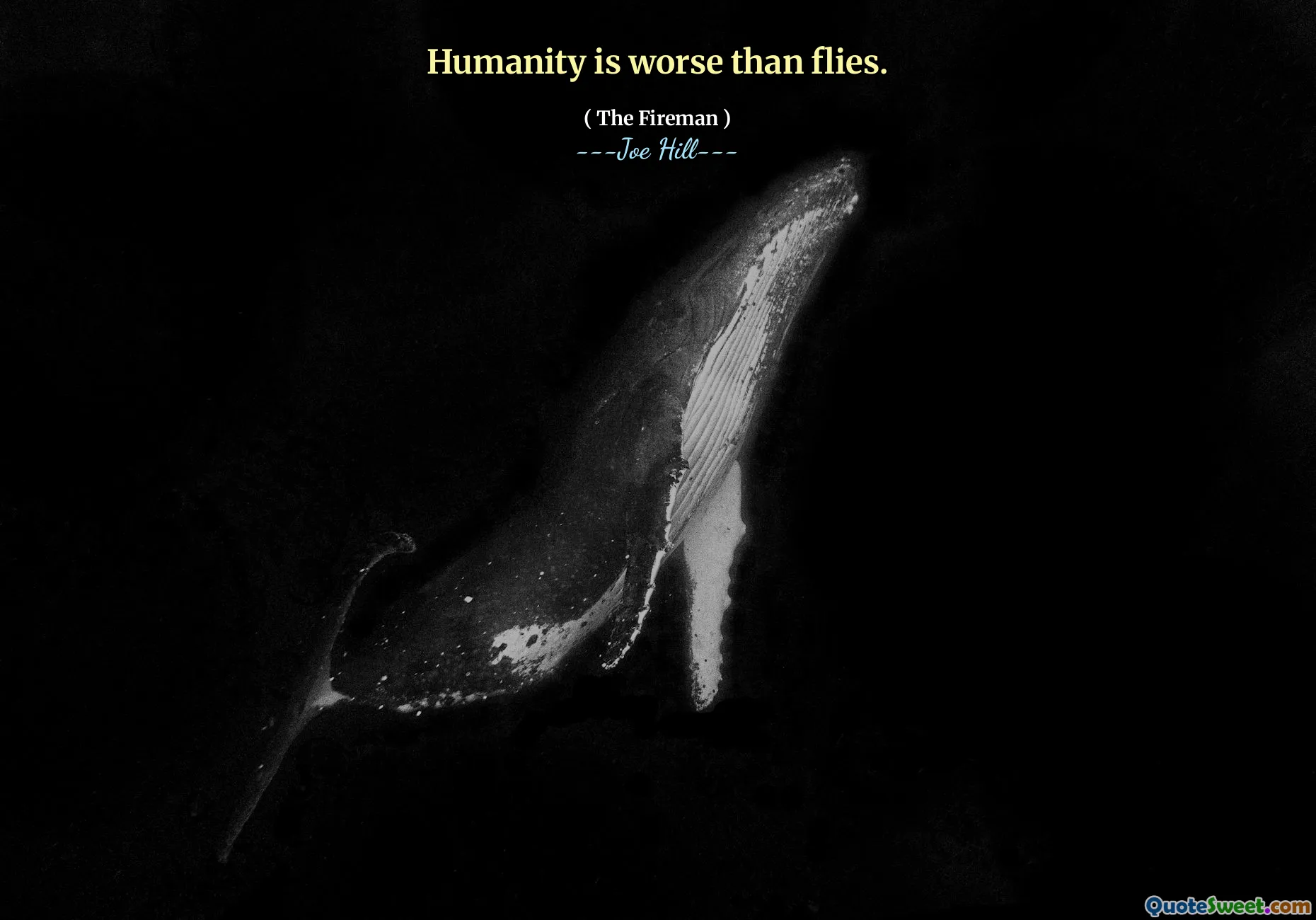
Humanity is worse than flies.
This stark statement evokes a profound reflection on human nature and the qualities that define us. Unlike flies, which are often seen as merely pests driven by instinct and survival, humans possess complex consciousness, morals, and a capacity for empathy. Yet, when the quote claims that humanity is worse than flies, it suggests a lamentation over the darker facets of human behavior—such as cruelty, greed, selfishness, and indifference. Throughout history, humans have committed acts of unimaginable cruelty, caused suffering to fellow beings, exploited resources for profit, and neglected their moral responsibilities. Such actions can sometimes overshadow the noble qualities we also possess, like compassion, kindness, and the desire for justice. This juxtaposition challenges us to consider the disparity between potential and actual behavior. Are humans inherently wicked, or are they products of their environment and circumstances? It urges introspection on societal, cultural, and personal levels. While we possess the power to create and nurture, we also have the capacity for destruction and callousness. Recognizing this duality is essential for growth. Striving to improve ourselves and our societies becomes a moral imperative, to ensure that we elevate the better angels of our nature rather than succumb to baser instincts. Ultimately, this quote serves as a sobering reminder that human actions profoundly impact the world around us, and that the true measure of our civilization lies in how we confront and rectify our darker tendencies.






